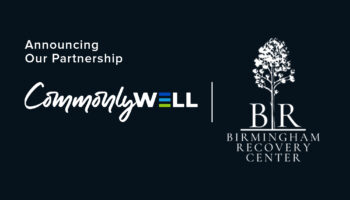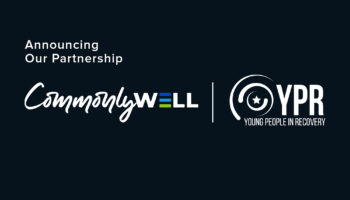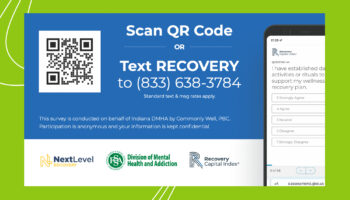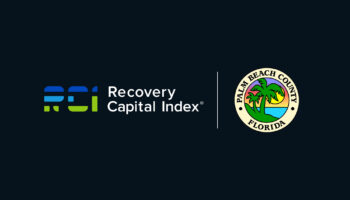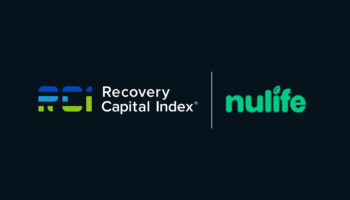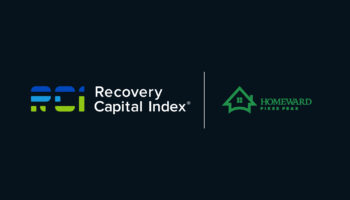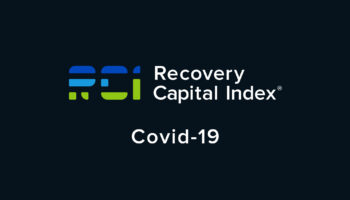Insights & Resources
Filtered by: Partnerships
Birmingham Recovery Center leverages the Recovery Capital Index to better client lives
"When we started this program... our objective was to do better as a program and to help elevate the services and the perceptions throughout the field. And the RCI is one of those things that just helps us to be better." - Ian Henyon, Executive Director at Birmingham Recovery Center
Read More →By Patrick
7/26/23
Using Data to Enhance the Journey of Recovery: A Conversation with Young People in Recovery
Commonly Well, the nation’s first recovery intelligence consultancy, has partnered with Young People in Recovery to achieve a comprehensive measure of the substance use recovery journey at an individual, community, and national level. Young People in Recovery (YPR), a national organization that provides life skills and peer support to help people recover from substance use disorder, will use Commonly Well’s Recovery Capital Index (RCI) tool to quantify the effectiveness of its programs. YPR will implement the RCI throughout its network of 56 chapters across 17 states over a two- year period.
Read More →By David
2/15/23
ANNOUNCEMENT: Indiana to map state’s recovery capital
The Indiana Family and Social Services Administration’s Division of Mental Health and Addiction today announced the launch of the Recovery Capital Index, designed to measure the sum of resources necessary for an individual to initiate and sustain recovery from addiction and to help track the overall recovery capital of the state and communities.
Read More →By David
6/17/22
Why Palm Beach County Chose the Recovery Capital Index to Shift to Recovery-Oriented, Person-Centered Care
Palm Beach County Florida has been at the center of the opioid crisis for many years. In an effort to address the complex challenges of the opioid epidemic, the County initiated a comprehensive opioid response plan.With so many lives impacted by substance use disorder, County leaders and stakeholders knew they needed a more integrated and collaborative approach to care. They also recognized that outcomes data needed to be unified across all agencies, more recovery-oriented, and representing the full recovery experience.
Read More →By David
7/8/21
NEWS: RCI to support coordinated digital recovery with NuLife virtual
Commonly Well is partnering with NuLife Virtual to enhance care provider’s ability to connect clients to high-quality care, maintain long-term continuous support, and measure change. NuLife Virtual is a leader in technology-assisted, addiction and mental health recovery management for enterprise providers and their clients. This collaboration will integrate the Recovery Capital Index® (RCI) from Commonly Well, an industry leading and scientifically validated social determinants and wellbeing assessment.
Read More →By David
3/17/21
Pobal Officially Announces a Partnership with Commonly Well to Integrate its Recover Capital Index (RCI)
Pobal, a technology and education-driven addiction treatment and recovery platform, has partnered with Commonly Well to integrate the Recovery Capital Index® (RCI), an industry-leading and scientifically validated recovery determinants assessment.Pobal is reimagining addiction recovery through a digital ecosystem of on-demand courses, tools, and community. The Ascent Recovery Program offers courses designed to educate practitioners and clients on the psychological, biological, and social dimensions of substance use disorder to promote treatment, recovery, and healing.
Read More →By David
2/17/21
ANNOUNCEMENT: Homeward Pikes Peak adds Recovery Capital Index to advance permanent housing initiatives
Homeward Pikes Peak to use the Recovery Capital Index to support addiction recovery efforts and measure long-term outcomes while housing those experiencing homelessness.
Read More →By David
11/17/20
ANNOUNCEMENT: The Recovery Capital Index is being used to understand the effects of COVID-19 on treatment disparities and access to care
A prospective study using the Recovery Capital Index® (RCI) is underway in Washington D.C.Bibhas Amatya and Omar Saadi, students from George Washington University, are conducting a study in affiliation with opioid treatment clinics throughout various wards in Washington D.C. The team seeks to understand the discrepancies in opioid treatment programs and the disparities in patient’s access to care.The study aims to build trends in data among evidence-based treatment models in establishing identifiable relationships in mental health and addiction recovery to prevent relapse rates that may have been influenced by the public health crisis.
Read More →By David
9/16/20
